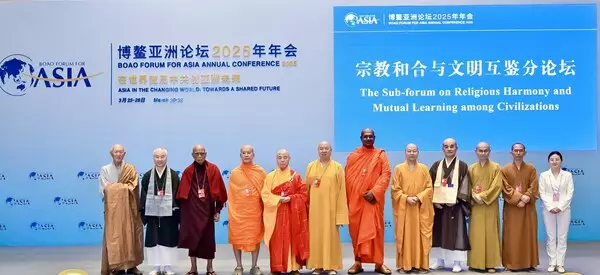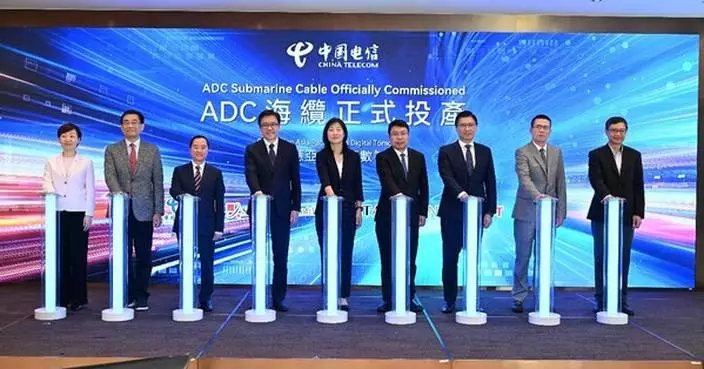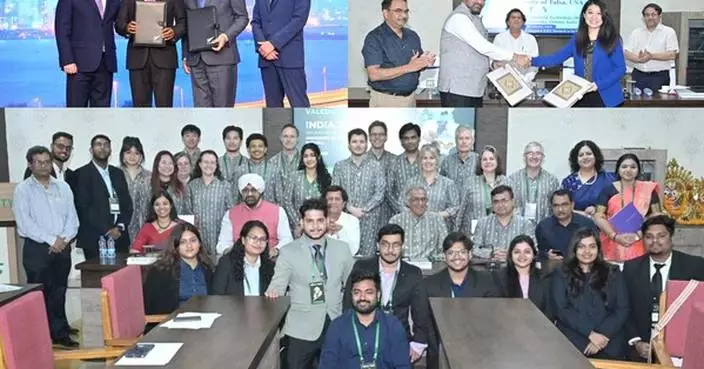AI-powered model predicts EGFR mutations from H&E-stained slides, demonstrating robust performance across diverse clinical settings and helping overcome barriers to molecular testing in NSCLC
SEOUL, South Korea, March 26, 2025 /PRNewswire/ -- Lunit (KRX:328130.KQ), a leading provider of AI-powered solutions for cancer diagnostics and therapeutics, will present a deep learning study on Epidermal Growth Factor Receptor (EGFR) mutation prediction in patients with non-small cell lung cancer (NSCLC) at the upcoming American Association for Cancer Research (AACR) Annual Meeting 2025, held from April 25 to 30 in Chicago, Illinois. The study, which highlights the development and validation of the Lunit SCOPE Genotype Predictor, an AI-powered deep learning model capable of predicting EGFR mutations directly from hematoxylin and eosin (H&E)-stained tissue samples in NSCLC patients, will be presented in collaboration with AstraZeneca (LSE/STO/Nasdaq: AZN).
EGFR mutation testing plays a crucial role in determining the best course of treatment for patients with NSCLC, yet many patients remain untested due to logistical and resource constraints, despite guideline recommendations. Existing AI models designed to predict mutations from pathology images have faced limitations in real-world clinical applications due to limited training data and lack of validation. Lunit and AstraZeneca's collaborative study leveraged the largest and most diverse training dataset to date, consisting of more than 12,000 pathology slides (>4,500 EGFR-mutated and >7,500 wild-type) from NSCLC patients across multiple countries, including the US, China, and South Korea, to further develop and validate Lunit's model.
The AI model's performance remained consistent across key clinical variables including specimen types, EGFR mutation subtypes, slide scanners, and scan magnifications, reinforcing its potential for real-world deployment in diverse clinical environments.
The collaboration focuses on the development of the Lunit SCOPE Genotype Predictor, an AI-driven tool designed to rapidly and cost-effectively predict NSCLC driver mutations from H&E-stained tissue samples.
"This study is a testament to the real-world potential of AI in precision oncology," said Brandon Suh, CEO of Lunit. "By leveraging Lunit AI, we have demonstrated that routine pathology slides can serve as a powerful tool to predict EGFR mutations with high accuracy. This could help clinicians prioritize molecular testing for NSCLC patients, ensuring that patients receive targeted therapy without unnecessary delays. We are excited to showcase this breakthrough at AACR 2025, reinforcing our commitment to advancing AI-driven precision oncology in collaboration with AstraZeneca."
Join Us at AACR 2025
Visit Lunit at AACR 2025 Booth #2843 to learn more about this study and how AI is advancing precision oncology and improving patient outcomes.
About Lunit
Founded in 2013, Lunit (KRX:328130.KQ) is a medical AI company on a mission to conquer cancer through AI. Lunit harnesses AI-powered medical image analytics and biomarker analysis to ensure accurate diagnosis and optimal treatment for each cancer patient. The FDA-cleared Lunit INSIGHT suite for cancer screening serves over 4,800 medical institutions across 55+ countries. Lunit clinical studies have been published in top journals, including the Journal of Clinical Oncology and the Lancet Digital Health, and presented at global conferences such as the ASCO and RSNA. Headquartered in Seoul, South Korea, with a network of offices worldwide, Lunit leads the global fight against cancer. Discover more at lunit.io.
** The press release content is from PR Newswire. Bastille Post is not involved in its creation. **

Lunit to Present AI Study on EGFR Mutation Prediction in NSCLC at AACR 2025 in Collaboration with AstraZeneca
QIONGHAI, China, March 30, 2025 /PRNewswire/ -- The Sub-forum on Religious Harmony and Mutual Learning Among Civilizations took place at the BFA (BFA) Annual Conference 2025 on March 28. The sub-forum focused on the theme "Countless Dharma Doors Converge in a Square Inch: A Discussion on the Future of Digitization Project of Buddhist Scriptures." The gathering brought together 12 eminent monks and cultural researchers from six countries and regions to explore the current state and future of digitizing Buddhist scriptures. Chaired by Venerable Master Yin Shun, Vice President of the Buddhist Association of China, and President of the Buddhist Association of Hainan Province, the event aimed to advance the preservation and development of Buddhist culture through international collaboration.
BFA’s 10th Religious Sub-forum Highlights Global Digitization Project of Buddhist Scriptures
BFA's Decade of Progress: A Solid Foundation for the Future
Yin Shun, reflecting on the ten-year journey of the BFA Religious Sub-forum, noted its steadfast commitment to the foundational goal of building a global community united by a common destiny. The sub-forum has been instrumental in promoting religious harmony and fostering cross-cultural dialogues, while also enhancing international cooperation in the fundamental domains of religion, culture, education, philanthropy, and healthcare. A notable achievement of the sub-forum has been in the area of digital preservation and accessibility of Buddhist teachings. It has effectively used digital technology to compile the Encyclopedic Dictionary of Chinese Buddhist Terms and has facilitated the digital translation of Buddhist classics across the economically important Pan-South China Sea region. Furthermore, it has proposed initiatives to raise the digitization of these texts as a major national concern. The South China Sea Buddhist Academy, China's premier international Buddhist educational platform targeting Southeast Asia, has made significant contributions by educating 106 international students from several nations, most notably from Laos, Mongolia, Cambodia, and Nepal, and, by doing so, playing a crucial role in the international effort to digitize Buddhist scriptures.
Digital Empowerment: Advocating for the Chinese Adaptation of Buddhism
Ven. Guang Quan, Deputy Secretary General of the Buddhist Association of China and President of the Buddhist Association of Zhejiang Province, noted the crucial role of digitizing Chinese Buddhist scriptures in enhancing the international dissemination of Buddhist culture. He highlighted the accomplishments of Hangzhou Lingyin Temple in this area, including the development of an AI-based OCR engine for ancient books, production and tool platforms for digitizing ancient books, and a Buddhist scriptures reading hub. Building on these advancements, efforts are underway to digitize Buddhist canons, citing, in particular, the Jingshan Canon, the Yongle Northern Canon and the Siji Canon. Guang Quan's initiatives aim to further the interconnection of civilizations through digital technology, breathing new life into Asian Buddhist wisdom in the digital realm.
Bhikshu HUIMIN, President, Comprehensive Buddhist Electronic Text Archive Foundation (CBETA) Taiwan, China, reflected on the establishment of the Electronic Buddhist Text Initiative (EBTI). He provided an overview of the current status of global Buddhist text digitization, highlighting its evolution from digital archives (DA) to digital humanities (DH). Additionally, he unveiled the groundbreaking concept of Artificial Intelligence and Brain-Computer Interface (AI - BCI) for the digitization of Buddhist culture. He stressed that the transition of Buddhism from traditional scriptures to cloud-based platforms represents not only the future of Buddhism but also a new civilization where mindfulness and technology merge.
Hong Xiang, Research Assistant at the Centre of Buddhist Studies, The University of Hong Kong, highlighted the transformative impact of digital technology on the collation and proofreading of the Dunhuang manuscripts, starting from the digitization project. He noted that the preservation of the Dunhuang manuscripts, which embody the essence of a multi-faceted and symbiotic civilization, demands interdisciplinary collaboration. Moreover, he advocated for global resource sharing in the digitization of Buddhist scriptures.
Zhu Cuiping, Editor-in-Chief of Zhonghua Book Company GuLian (Beijing) Digital Media Tech Co., Ltd, China, pointed out that the digitization of Buddhist scriptures is an enormous undertaking that requires a collaborative effort among the government, religious organizations, universities, research institutes, and publishing entities. She called for the initiation of a global initiative to compile Buddhist literature to drive the worldwide project of digitizing Buddhist scriptures.
International Cooperation: Jointly Advancing the Global Digitization Project of Buddhist Scriptures
The sub-forum placed particular emphasis on the contributions of Japanese and Korean Buddhism to the digitization of Buddhist scriptures. KAWANAKA KOKYO, Director-General of Administration of Jodoshu, Japan, presented the "Digitization of ZÅjÅ-ji's Three Great Buddhist Canons" project. He urged all parties to collaborate in furthering the global effort to digitize Buddhist scriptures, with the aim of fostering a more peaceful and harmonious future for humanity.
JONG-RIM, Honorary Chairman of Tripitaka Koreana Research Institute, Jogye Order of Korean Buddhism, shared insights from the digitization efforts of the Tripitaka Koreana at Haeinsa Temple in Korea. He proposed the future goal of completing a comprehensive Tripitaka and developing a dictionary of concepts and terms utilizing digital technology.
South China Sea Buddhist Friendship Circle: Fostering Digital Connections
The sub-forum highlighted the role of the South China Sea Buddhist Friendship Circle in the digitization of Buddhist scriptures. Ven. PHRAPROMMASITH (Thongchai Sukkayano) Supreme Patriarchs, elaborated on Thailand's experience in safeguarding Buddhist cultural heritage. He urged international cooperation to facilitate the digitization of Buddhist scriptures, aiming to provide convenient access to anyone anywhere with an interest in reading and better understanding the Dharma.
SANDI MARBHIVAMSA, Chairman of Sangha Maha Nayaka Committee, Myanmar, and Ven. (Dr.) KIRINDE ASSAJI, Chief Prelate (Malwatta Chapter) Sanghanayaka of Sri Lanka's Western Province, provided insights into the current state of Buddhism in their respective countries and the advancements made in the digitization of Buddhist scriptures. They both expressed a strong willingness to collaborate with Buddhist communities from other nations in these endeavors.
Looking to the Future: Consultation, Collaboration, and Sharing
Ven. YAN JUE, President of the Buddhist Association of China, concluded by emphasizing that Buddhist scriptures represent a shared cultural heritage of humanity. He noted that their digitization presents not only a technical challenge but also a cultural mission. He also underscored the commitment of the Chinese Buddhist community to the global governance principles of consultation, collaboration, and sharing. By partnering with Buddhist and academic communities worldwide, they aim to advance the digitization of Buddhist texts, share the outcomes of these efforts, and further disseminate the teachings and scriptures of Buddhism.
** The press release content is from PR Newswire. Bastille Post is not involved in its creation. **

BFA's 10th Religious Sub-forum Highlights Global Digitization Project of Buddhist Scriptures





















































